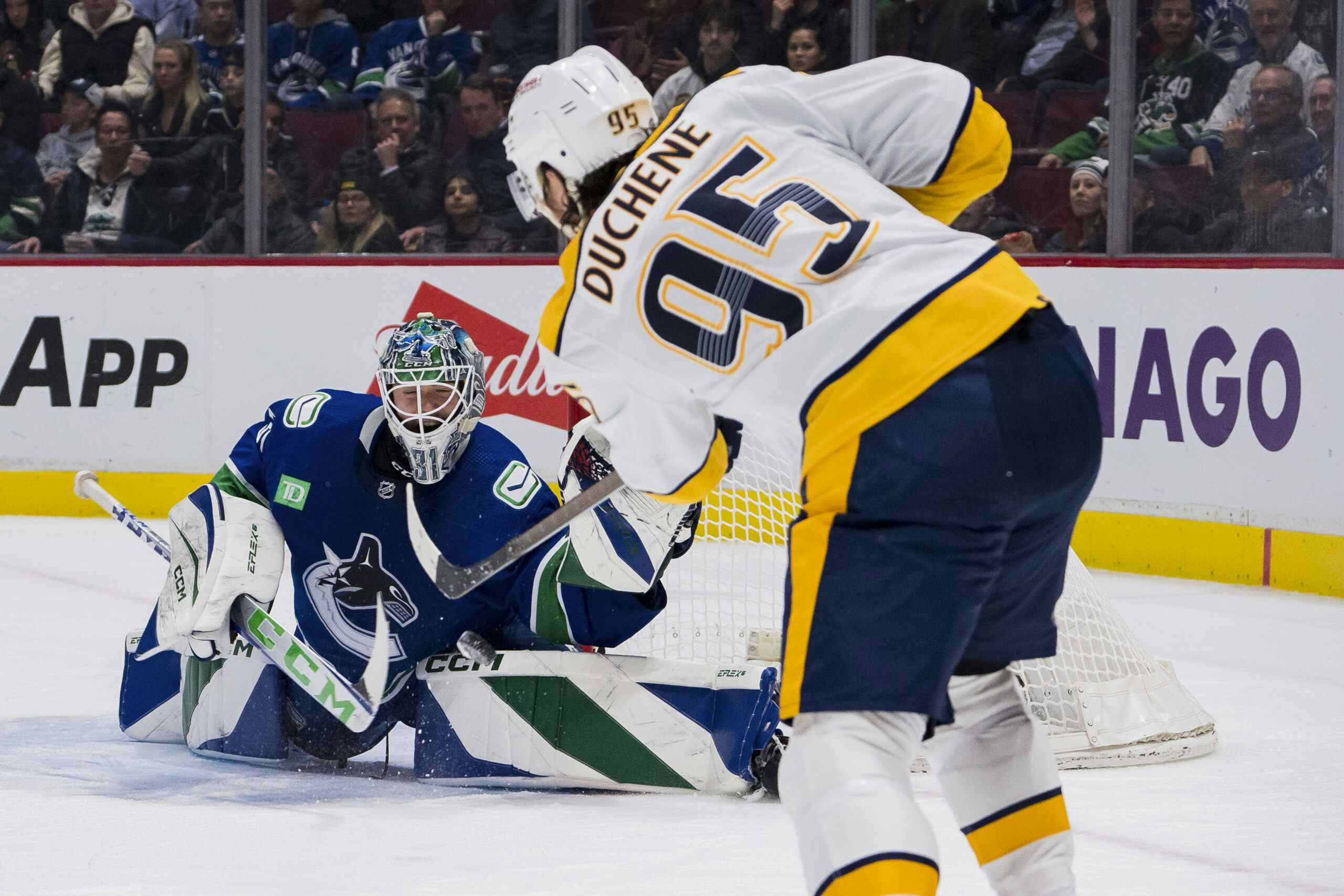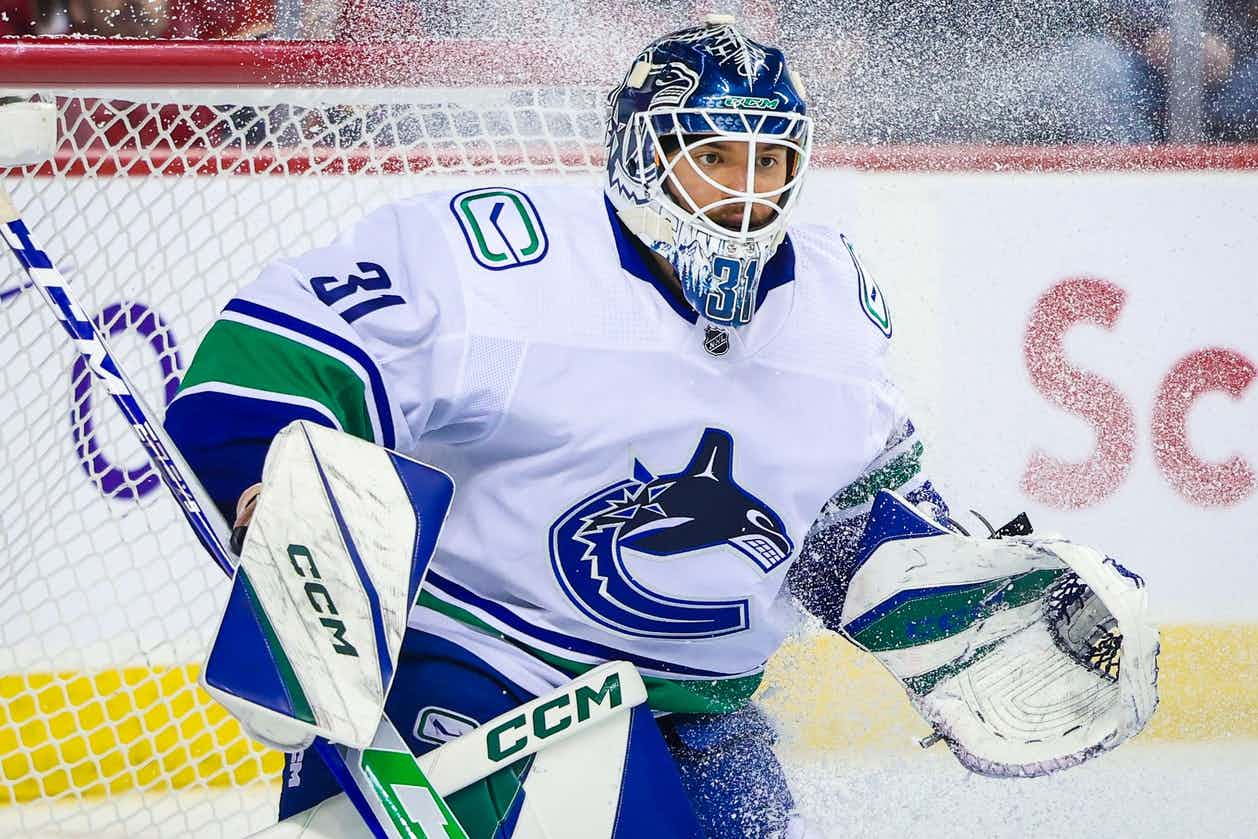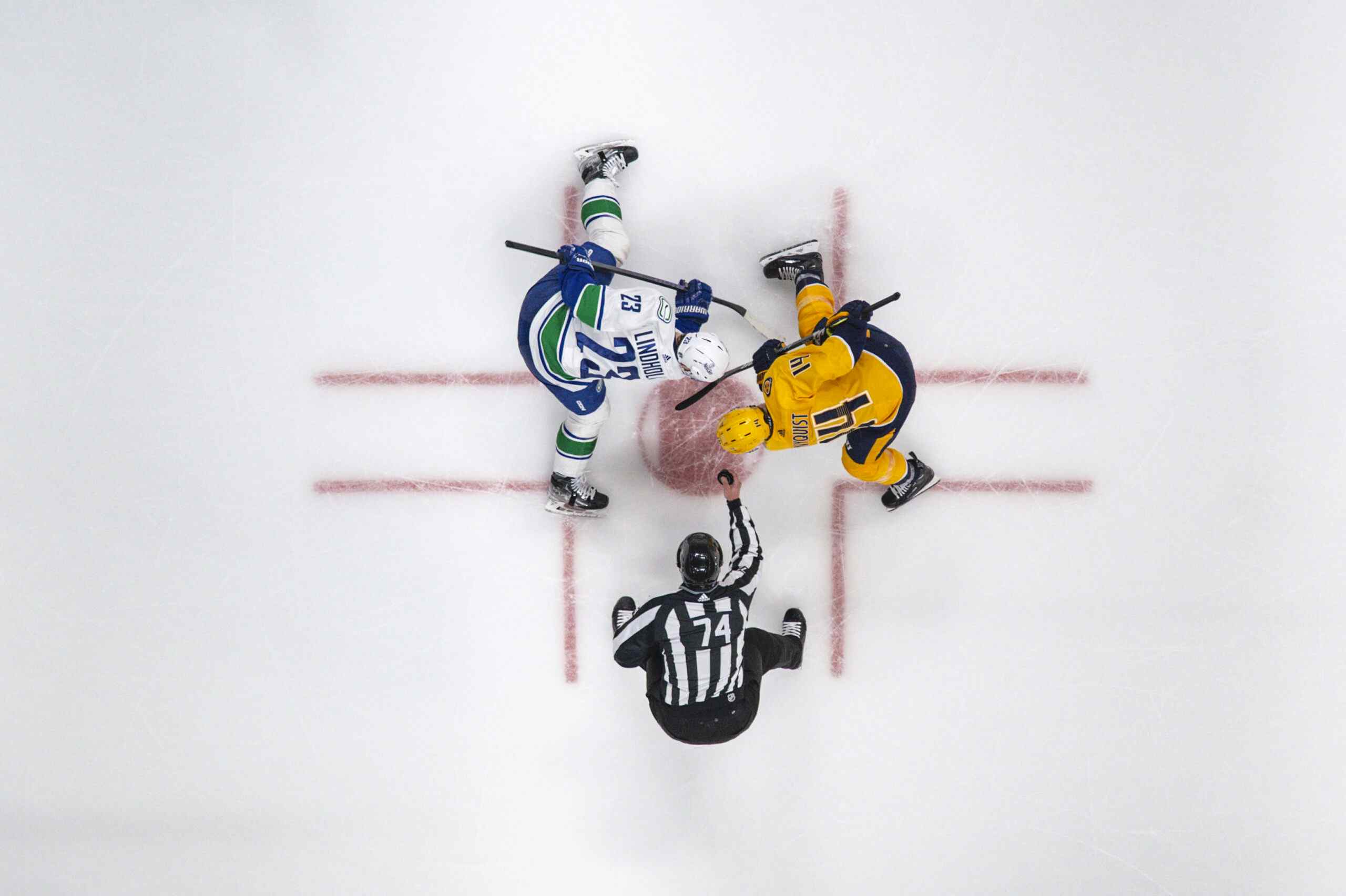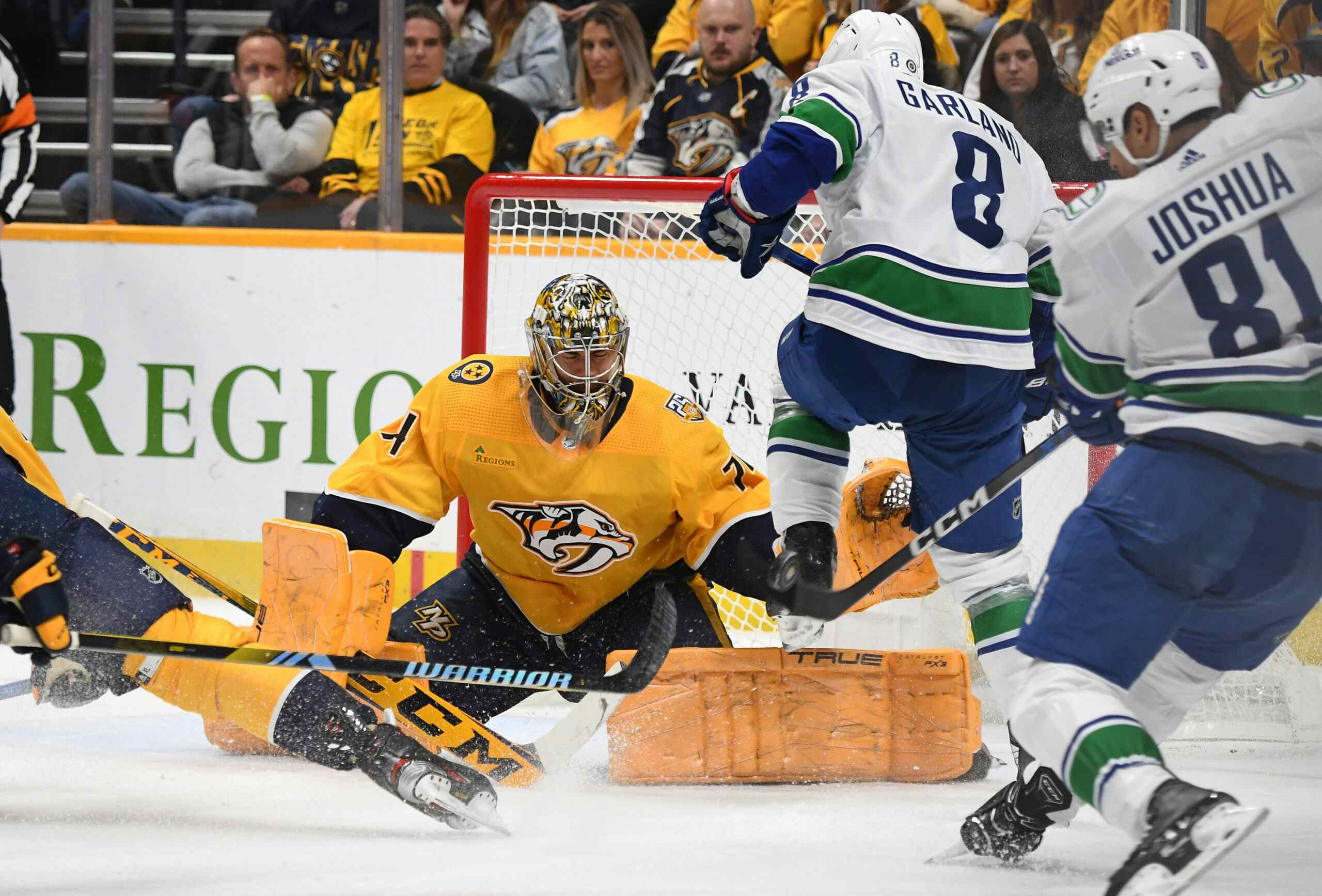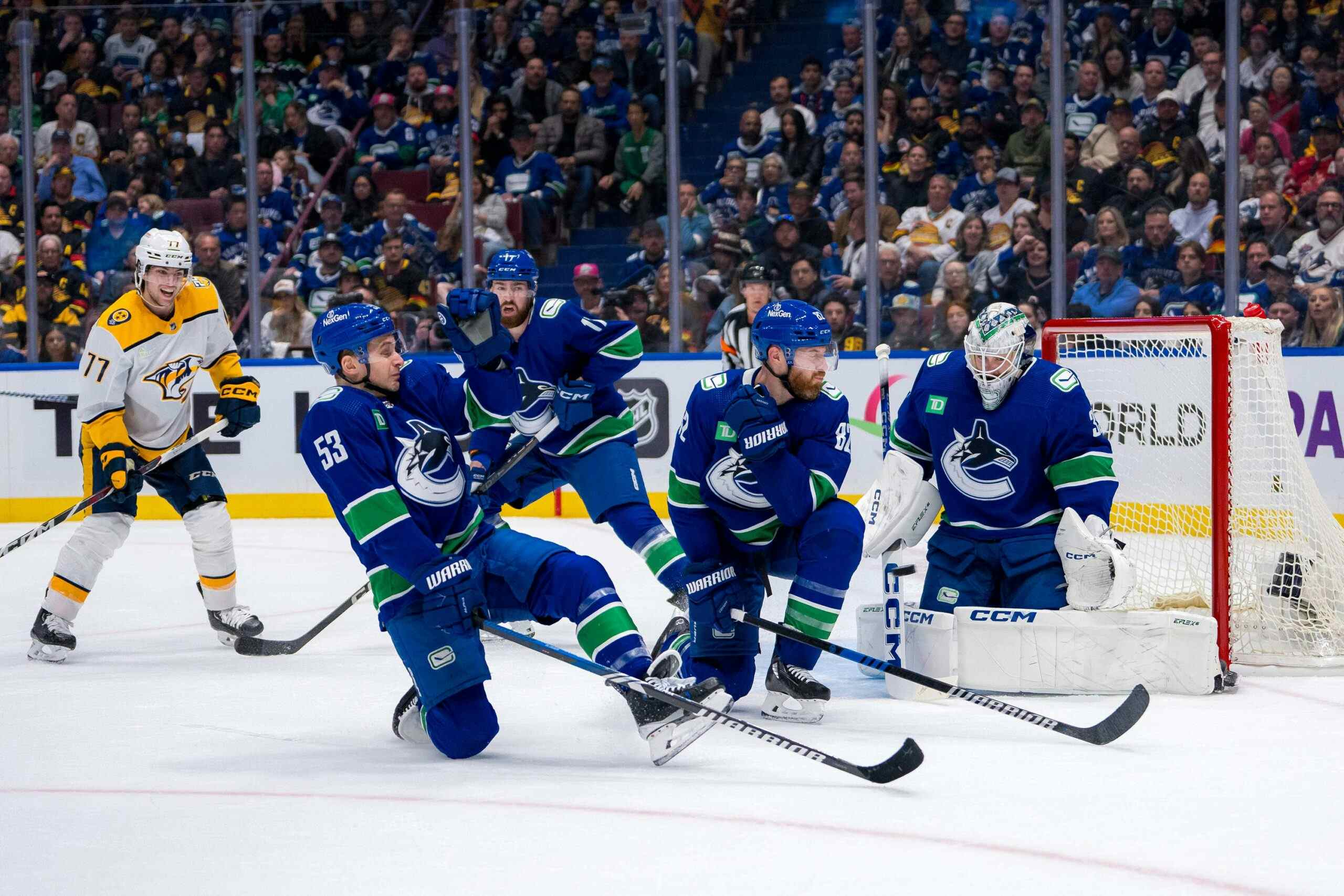Luongo the choker?
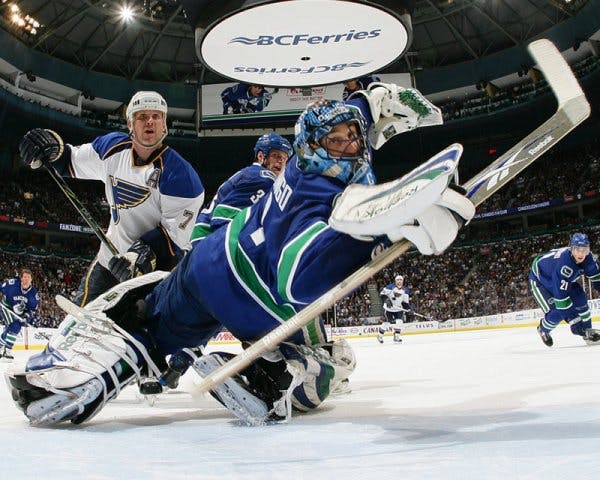
I realized last week that Luongo’s EV save percentage in the postseason was virtually identical to what it had been in the regular season. As I often do when i realize such things, I decided that I’d tweet the numbers while ironically mocking those who believe that Luongo lacks a particular type of mental fortitude, and as a result habitually combusts in "career defining games." The reaction was decidedly mixed, one guy told me that my spin was so disingenuous that I should apply to be the next "Iraqi Information Minister." The Kurtenblog merely noted that "numbers never tell the whole story".
I happen to place a lot more faith in data than on any potentially biased individual’s impression (including my own) and it’s my opinion that good analysis should include data, and an understanding of the ratios and percentages at play. Still the mixed reaction wasn’t that surprising, Luongo has always been a divisive figure during his Vancouver tenure. Jason Botchford, who this offseason called Luongo’s relationship with the city of Vancouver "toxic," even came up with a "Top-10 Luongo controversies" list last January.
The origin of the "Luongo is mentally soft" myth can be traced to Rob Niedermayer’s double OT winner that eliminated the Canucks in May of 2007. We all remember this goal, first of all, Luongo was late to get back to the ice because of his infamous bathroom break, forcing Dany Sabourin to make 5 OT saves. Then he was arguing a call as Niedermayer scored on a weak point shot. Luongo failed to play to the whistles and as a result the Canucks were out.
The next season was "Gina Luongo-gate" when Roberto was roundly criticized for his handling of his wife’s pregnancy. Because his family was based in Florida – Luongo took every opportunity to visit his wife, skipping the all-star game to do so and excessively criss-crossing the continent. When the Canucks collapsed down the stretch and missed the playoffs – the controversy exploded "external factors shake Luongo" the haters said.
In the next season the Canucks went up against a favored Blackhawks team. In game 4 the team was ninety seconds away from taking a 3-1 strangle-hold on the series when Martin Havlat turned a failed clearing attempt by Willie Mitchell into a tied game. Andrew Ladd scored the OT winner, and the Canucks didn’t win another game in the series. Game 6 was the 7uongo game, where he got lit up by Kane in the third period, and the team was eliminated 7-5. The "Chelsea Dagger" meme was born (Luongo has given up 25 goals in 9 playoff games at the Mad-House the last 3 seasons).
The next season – after Martin Brodeur stumbled in the elimination round – Roberto Luongo won the starting job and a gold medal with team Canada. He posted stellar numbers and didn’t lose a single game (927 sv%, 1.76 GAA). Despite his play, his memorable save on Demitra to preserve the win in the semi-finals, and the fact that Weber failed to take the body and cover his man in front of the net on Parise’s game-tying goal, this is the moment that everyone remembers, and blames on Luongo:
That years postseason was pure frustration for Luongo – the Canucks weren’t even close to beating the Blackhawks (despite winning game 1 in a blowout) and Luongo got lit up, a lot like everyone else who played goal against the Blackhawks in the postseason that year.
Which brings us to this years Cup run… Luongo was stellar through three games against Chicago before getting lit up in the second period of game four, and the first period of game five (he was pulled in both games). This led Vigneault to start Cory Schneider in game six and the controversy was relentless. It was high-drama when Luongo ended up back in net for the third period after Schneider got hurt on a converted Frolik peanlty shot, and when he ended up on his stomach for Ben Smith’s game winner – Canucks fans were panicked.
But "mentally soft" Luongo rebounded, he was solid and "cltuch" in game 7, and made a pivotal short-handed stop on Patrick Sharp in OT minutes before the Burrows winner. For the next two rounds – Luongo was basically impregnable. He did well enough against the Predators pop-gun offense (though he was vulnerable to lucky bank-shots) and he had a magnificent series shutting down San Jose’s impressive arsenal of fire-power.
Things got away from Luongo however in the finals. The percentages went against him, and though he had two shutouts, the Bruins scored against him twenty times in 7 games and he was pulled twice. His worst game was easily game 6, and I don’t have anything to say in Luongo’s defense when it comes to Lucic’s weak five-hole goal that put Boston up 2-0 early in the first period.
We can agonize about the final series and breakdown goal by goal where Luongo was at fault – but all you really need to know is that the Canucks didn’t convert on a single power-play (the teams bread and butter) and scored eight goals total in the series. The fact that it even went seven games is in large part a credit to Luongo’s play. Luongo cost the Canucks game 6, but goalies have bad-games – even the immortal Tim Thomas had a bad playoff series this season.
I know it goes against the "Thomas is god" narrative – but the percentages got away from him in the series previous. Tampa Bay scored more than four goals on Thomas four times in the Eastern Conference Finals, and a lot of those goals were of the "weak" variety. Now in fairness to Thomas – he faced about seventy more shots than Luongo did in the Stanley Cup Final (Thomas was never pulled, Luongo was twice). The point, however, remains: even one of the best goalies having "the best statistical season in the history of the position" is suseptible to goals-allowed bursts.
Why? Because a lot of goal-scoring is luck. Puck-luck determines a lot in hockey, and eventually the percentages will get away from you – even if you’re a great player. Luongo’s finals save percentage wasn’t good: .891% but it’s a small sample size. Fact is, even the best goaltenders get lit up sometimes – and on a Championship team, when that happens, the offense needs to step up. Boston’s offense (and Seguin in particular) saved the day when Thomas faltered in the ECF, and the Canucks offense was unable to do the same thing in the SCF. Further, though Dellow wrote this post prior to game 6, it doesn’t seem as if Luongo is any more prone to "blow-up" than the likes of slam-dunk hall of famer Martin Brodeur, when Brodeur was in in his prime.
Which brings us to my final point: the Canucks lost their best defensive defenseman Dan Hamhuis in the first period of game one. According to Mirtle’s data, Dan Hamhuis was the leagues best defensive defenseman last season. If Chara had gone down in game 1 and Thomas had summarily struggled – the apologists would be lining up around the block. But when it’s Luongo, everyone has already made up their mind that he’s a choker anyways – so they don’t cut him the same common-sense slack.
Doubt Luongo if you like, but I think the "choker" narrative is pure myth. The guy won three playoff series last season, and 15 playoff games, while pitching fourteen quality starts. His career numbers in the playoffs and regular season are solid – they speak for themselves. The Canucks lost the Stanley Cup Finals because Kesler’s injury cost the team their one-two punch, the Bruins dominated the special teams battle and Thomas was dynamite. Luongo’s struggles were a secondary reason for the finals loss as I see it, but hell, maybe I’m just a whiny fanboy.
Recent articles from Thomas Drance

